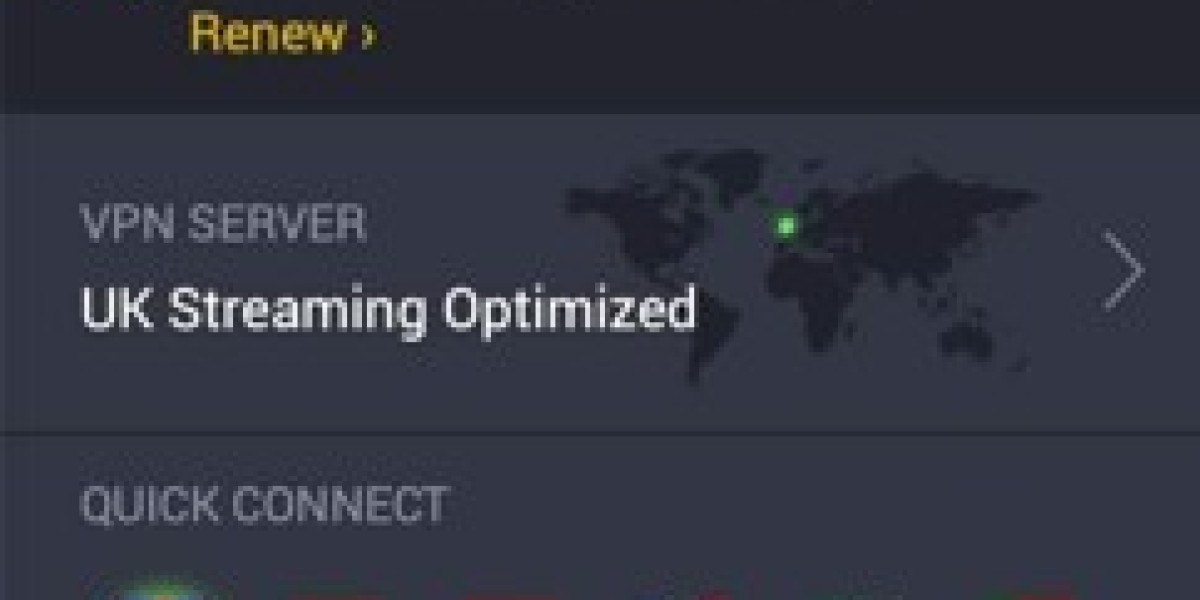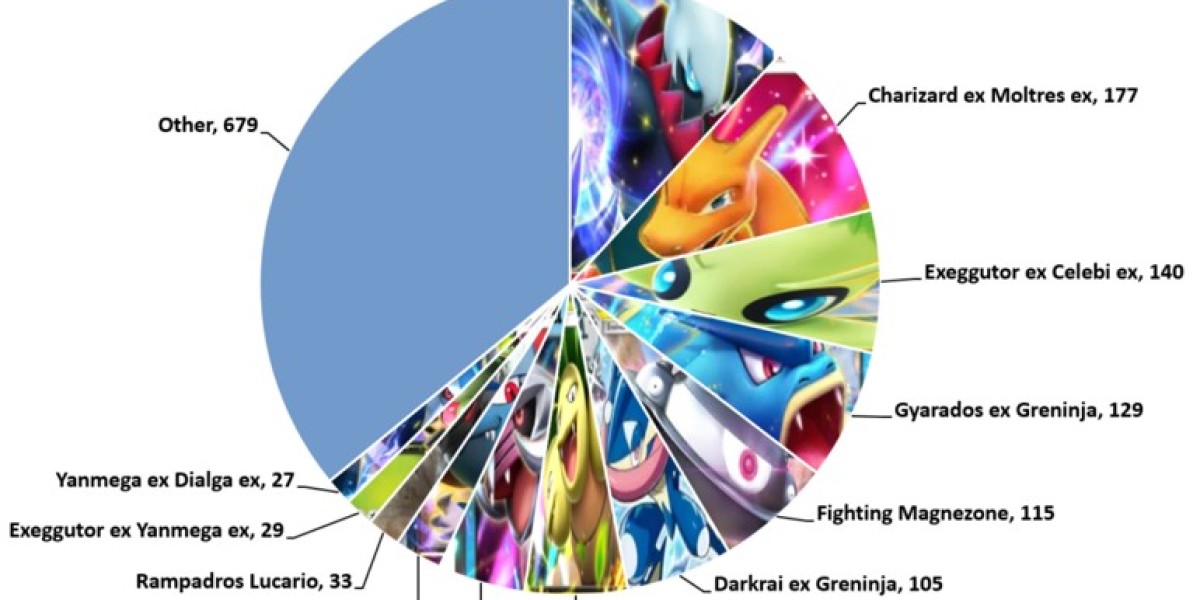Mullvad vs PIA Comparison
Choosing a VPN can often be perplexing, especially when many services boast similar features like robust encryption, speedy connections, and strict no-logs policies.
Two prominent names in the VPN arena are Mullvad and Private Internet Access (PIA), both of which have garnered a solid reputation.
However, what distinguishes these two providers from each other, and which one ultimately comes out on top?
This detailed comparison delves deep into the specifics of Mullvad and PIA.
If you're interested in aspects such as server locations, connection speeds, or security protocols, this analysis covers it all.
The information is organized into key categories, with numerous side-by-side comparisons to highlight the differences and similarities between Mullvad and PIA.
By the end of this guide, you’ll have a clearer understanding and an overall winner to aid in your VPN selection process.
Mullvad stands out from typical VPN services by providing a consistent monthly fee of €5, which is approximately $5.26 based on current exchange rates.
This pricing structure positions it as one of the more budget-friendly VPN options, especially for users seeking short-term plans.
In contrast, Private Internet Access (PIA) charges significantly more for a one-month subscription, with a price tag of $11.95, which is over twice the cost of Mullvad.
When it comes to pricing, PIA offers substantial savings for long-term commitments.
If you opt for a yearly plan, you'll pay $39.95, translating to just $3.33 per month.
This makes it one of the most affordable one-year VPN options on the market.
Additionally, if you're ready to commit for three years, you can take advantage of a special offer: the plan costs $79 and gives you three months for free, bringing the monthly cost down to an impressive $2.03.
When choosing between Mullvad and Private Internet Access (PIA), it ultimately depends on your preference for subscription style.
If you value flexibility, a short-term subscription might be more appealing, albeit at a higher monthly cost.
On the other hand, if you're looking to save money in the long run, a long-term subscription could be the better option.
Both services provide a 30-day money-back guarantee, allowing you to test them without any risk.
For Mullvad, the most attractive offer is a straightforward monthly fee of €5 (approximately $5.15 currently).
In contrast, PIA has an impressive deal where you can save 83% and receive an additional three months for free, bringing the cost down to just $2.03 per month with a three-year plan.
When comparing Mullvad and Private Internet Access (PIA), both providers offer applications compatible with various platforms, including Windows, macOS, Android, and iOS. However, only PIA has developed an application specifically for Amazon Fire TV.
For those comfortable with manual configurations, either VPN can be set up on a Wi-Fi router. PIA supports OpenVPN on a variety of routers such as DD-WRT, LEDE, AsusWRT, and pfSense, while Mullvad is compatible with DD-WRT and pfSense, in addition to Tomato, Asus Merlin, and OpenWRT. Configuring a VPN on a router ensures that every device connected to that network benefits from the VPN’s protection.
Mullvad allows connections for up to five devices per account, which may be sufficient for individual users. In contrast, PIA offers an unlimited number of simultaneous connections, making it a more suitable choice for families or groups sharing the service. However, by setting up Mullvad on a router, users can effectively bypass the device limit since only the router itself counts towards this restriction.
In terms of features, both Mullvad and PIA provide a range of extras, though they may not be as comprehensive as those from top competitors like NordVPN and Surfshark. Both services include a DNS-based ad and tracker blocker, which performs adequately but may not match the effectiveness of dedicated ad-blocking tools.
While Mullvad has a Firefox extension, it functions as a SOCKS5 proxy rather than offering encryption for your browsing data. In contrast, PIA provides browser extensions for Chrome, Firefox, and Opera that do include encryption. Both VPNs also feature double VPN (or multihop) servers, which provide additional layers of encryption for enhanced security.
Both services support split tunneling on their desktop applications, with Mullvad extending this feature to its Android app as well. This functionality allows users to select which applications will use the VPN while allowing others to connect directly to the internet. Additionally, PIA includes port forwarding capabilities, enabling remote devices to bypass NAT firewalls.
A VPN serves a purpose that goes beyond merely enhancing privacy.
Many users turn to VPNs to access content that may be geo-restricted.
For instance, if you find yourself on vacation overseas and wish to watch your usual streaming services, you might discover that they are unavailable in your current location, hindering your ability to view content you’ve already subscribed to.
By connecting to a server located in your home country, you can mask your actual location and circumvent these geo-restrictions.
Both Mullvad and Private Internet Access (PIA) offer this capability, but there are more effective alternatives available for popular streaming services.
Streaming platforms frequently implement stringent measures to combat VPN usage, including blacklisting IP addresses that are known to belong to VPN services.
During our evaluation, Mullvad encountered difficulties with several streaming services.
On a positive note, it successfully accessed the US version of Netflix, as well as BBC iPlayer and ITVX.
Conversely, PIA demonstrated greater effectiveness, managing to unlock Disney+ and HBO Max.
Similar to Mullvad, PIA was unsuccessful in accessing Amazon Prime Video, DAZN, and Hulu.
When it comes to streaming capabilities, Private Internet Access (PIA) demonstrated solid performance, achieving an average speed of 150 Mbps during tests. This speed is sufficient for seamless 4K streaming, avoiding common issues like lag and buffering.
On the other hand, Mullvad outperformed PIA, showcasing remarkable speeds that place it among the top contenders in the VPN market. With an impressive average global download speed of 209 Mbps, Mullvad stands out as one of the fastest VPNs available.
Using a VPN is generally possible in most countries, but China stands out as a significant exception.
This nation has enacted strict measures against various VPN services, blocking their websites and servers, and employing deep packet inspection techniques to identify and obstruct VPN traffic.
In China, only those VPNs that have government approval tend to operate effectively. However, this compliance often demands that VPN providers grant the Chinese government access to their systems, something that reputable VPNs typically refuse to do.
As a result, many trustworthy VPN providers have ceased their operations in China over the past few years.
Both Mullvad and Private Internet Access (PIA) are among the VPNs that face restrictions in China.
While Mullvad has shown some capability to work in China, its performance can be inconsistent. It employs a bridge mode that utilizes a Shadowsocks proxy, which provides an additional encryption layer for user traffic.
Conversely, PIA struggles more with bypassing censorship and does not offer reliable access in China.
For those seeking a dependable VPN solution for use in China, alternatives like NordVPN, Surfshark, or ExpressVPN are recommended, as they have demonstrated strong effectiveness in overcoming censorship barriers.
Setting up a VPN with either Mullvad or Private Internet Access (PIA) is a straightforward process.
Just head to the official site of your chosen VPN service, choose the subscription plan that suits your needs, and download the application for your device or devices.
Both providers offer a hassle-free installation experience with guided setup wizards to assist you along the way.
Mullvad is known for its intuitive and user-friendly applications.
Users can easily navigate through a dropdown menu to select their preferred server locations, or even specific servers if desired.
Accessing the settings is just a click away, allowing you to easily toggle various options or select from additional dropdown menus.
The main dashboard of Mullvad’s app conveniently shows your remaining subscription time, and by clicking on the profile icon, you can quickly find your account number and options for purchasing more credits.
The applications offered by Private Internet Access (PIA) and Mullvad are distinctly unique.
PIA's main interface prominently displays a large quick-connect button, allowing users to swiftly establish a VPN connection.
Users can easily identify their current connection location, their VPN IP address, and their actual IP address at a glance.
Furthermore, the interface can be expanded to showcase various settings and data relevant to the user, including data consumption, selected VPN protocol, and a handy VPN snooze option.
One of the standout features is the ability to customize the layout, enabling users to drag and drop elements into their desired arrangement.
VPN Comparison: PIA vs. Mullvad
Accessing the settings in PIA requires just a few clicks, leading to a wealth of options.
Here, users can explore various VPN protocols and features, including a kill switch, split tunneling, and multihop capabilities.
In contrast, Mullvad’s applications stand out for their user-friendly design, making them more suitable for beginners.
Nonetheless, advanced users may find great value in the extensive customization options available within PIA’s applications.
When evaluating VPN options, the size of the server network plays a crucial role. A more expansive network provides greater flexibility in terms of server locations and the number of available connections. However, a larger server count does not inherently guarantee a superior experience—it heavily depends on the user demand for those servers. The ideal scenario is to have a low server load, which ensures faster speeds and stable connections.
Among the two VPNs discussed, Private Internet Access (PIA) boasts a significantly larger server network. While the exact number of servers remains undisclosed, estimates suggest it could be in the thousands, with coverage across 91 countries—outpacing many competitors, including Mullvad. In contrast, Mullvad operates with a more modest setup, featuring just over 600 servers that span 48 countries.
Your choice of VPN should be guided by your desired connection locations. Both Mullvad and PIA provide servers in popular destinations like the United States, Canada, the United Kingdom, and Australia. However, if you're interested in connecting to servers in countries like Costa Rica, Egypt, or New Zealand, PIA is the only option available. Notably, Mullvad uniquely offers server access in Thailand.
To summarize the countries where Mullvad and Private Internet Access have server presence:
Both Mullvad and Private Internet Access (PIA) provide robust security with 256-bit AES encryption, ensuring that your online activities remain protected from potential intruders.
The use of 4096-bit encryption keys further enhances their security, as these keys are significantly longer than the 2048-bit ones employed by various other VPN services, making them more resilient to attacks.
When it comes to connection protocols, both VPNs allow users to choose between WireGuard and OpenVPN. WireGuard, being a newer protocol, boasts a lightweight design with a codebase of around 4,000 lines, which contributes to its impressive speed, particularly beneficial for activities such as streaming, torrenting, or gaming. On the other hand, OpenVPN has established itself over time, offering proven reliability along with advanced obfuscation features.
A notable advantage of Mullvad is its cloaking capability, which allows users to mask their VPN usage. Through its bridge mode, Mullvad employs Shadowsocks proxies to make VPN traffic indistinguishable from regular internet traffic. This feature is particularly valuable in regions with strict internet censorship, where users might face legal repercussions for their online actions.
Both Mullvad and PIA include a kill switch function, which is crucial for maintaining privacy. If the VPN connection unexpectedly drops, this feature automatically halts internet traffic to prevent any exposure of your real IP address or data. This function is integrated into both desktop and mobile applications, though Mullvad’s kill switch cannot be turned off.
When evaluating VPN services, privacy is paramount, and the best providers uphold strict no-logs policies. This ensures that they do not retain any identifiable information about users, such as IP addresses or internet activity. Both Mullvad and Private Internet Access (PIA) adhere to this principle, distinguishing them as highly private options in the market.
It's important to note that PIA operates out of the United States, a member of the Five Eyes intelligence alliance. If compelled, the U.S. government could access data from PIA and potentially share it with other allied nations. Conversely, Mullvad is based in Sweden, which is part of the 14 Eyes group. However, both services do not log personal user data, which alleviates some privacy concerns.
In the battle for privacy superiority, Mullvad takes the lead. Instead of requiring personal information like an email address, Mullvad issues users a unique account number for access. This feature enhances anonymity, as users can even pay with cash, allowing for a completely anonymous signup process.
On the other hand, PIA lacks a fully anonymous payment method. While it accepts cryptocurrency as a payment option, the transactions are processed through Bitpay, which does not guarantee anonymity. The cryptocurrencies accepted, including Bitcoin, Ethereum, and Litecoin, also do not provide the same level of privacy as Mullvad’s offerings. Mullvad allows users to utilize a one-time payment address for subscriptions and accepts Monero, a cryptocurrency known for its strong privacy features.
Both Mullvad and Private Internet Access (PIA) employ shared IP address allocation, a common practice among VPN services. When you connect to their servers, your IP address is shared with other users. This setup enhances privacy, as it obscures your online actions by blending them with those of others, making it challenging for anyone to trace specific activities back to you.
However, there are advantages to having a dedicated IP address. Owning a unique IP can enhance your online reputation compared to sharing one with multiple users. This often leads to fewer captcha challenges, as your activities are less likely to be flagged as suspicious. Additionally, it minimizes the possibility of being blacklisted by websites and services.
PIA stands out by offering dedicated IP addresses as an optional paid feature for its subscribers. For a monthly fee of $5, you can obtain a dedicated IP, with the price decreasing to just £2.50 per month if you commit to a three-year plan. Users can choose from dedicated IPs in 26 locations across 10 different countries, including the US, Canada, UK, Australia, Japan, Switzerland, Germany, Belgium, Sweden, and Singapore.
When comparing Mullvad and Private Internet Access (PIA), a key distinction arises in customer support options.
PIA stands out by providing live chat assistance, ensuring users can receive prompt answers to their inquiries at any hour of the day.
This round-the-clock support is a standard feature among leading VPN services, making Mullvad's lack of similar support a notable omission.
Both services do offer email support, with responses typically arriving on the same day.
In my experience, replies from either service generally took about eight hours, which is acceptable if you’re not pressed for time.
However, this response time doesn't match the efficiency of ExpressVPN, which often replied within an hour.
Regarding the quality of responses, Mullvad's answers were satisfactory but occasionally lacked depth.
In contrast, PIA provided thorough and detailed replies, particularly concerning specific features or settings.
While neither VPN offers phone support, this is not unusual in the industry, with few providers like IPVanish offering such options.
For those who prefer self-service, both VPNs feature comprehensive help sections on their websites, including FAQs and detailed setup guides with visuals.
However, I encountered difficulties accessing PIA’s guides on desktop browsers, though they worked well on mobile devices.
If privacy is your primary concern, Mullvad excels with its anonymous signup process, payment options, and strict no-logs policy.
Additionally, it boasts impressive server speeds, user-friendly apps, and a low monthly subscription rate.
Yet, Private Internet Access emerges as the superior option overall for several reasons.
PIA offers a more cost-effective solution, especially for long-term subscriptions, alongside a significantly larger server network.
It also allows unlimited simultaneous connections and demonstrates better capabilities in unblocking popular streaming services.
Ultimately, PIA presents a well-rounded combination of performance and privacy, making it one of the top VPNs available today.
What is a Netflix VPN and How to Get One
A Netflix VPN is a virtual private network that enables users to bypass geographical restrictions and access region-specific content on Netflix by connecting to servers in different countries. By choosing a reliable VPN provider that supports streaming, users can download the VPN application, connect to a server in their desired region, and enjoy Netflix's diverse library without limitations.
Why Choose SafeShell as Your Netflix VPN?
If you want to access region-restricted content by using a Netflix VPN, you may want to consider the SafeShell VPN . SafeShell VPN offers several benefits that make it an ideal choice for Netflix enthusiasts.
-
High-speed Servers for Netflix: SafeShell provides high-speed servers specifically optimized for Netflix streaming, ensuring a seamless viewing experience with no interruptions.
-
Connect Multiple Devices at Once: With the ability to connect up to five devices simultaneously, SafeShell VPN supports a variety of operating systems, allowing you to enjoy netflix unblocked on any of your devices.
-
Exclusive App Mode: This unique feature lets you unlock and enjoy content from multiple regions at the same time, giving you access to a diverse range of streaming libraries.
-
Lightning-Fast Speeds: Experience unprecedented internet performance with lightning-fast speeds and no bandwidth limitations, eliminating buffering and throttling.
-
Top-Level Security: SafeShell's proprietary "ShellGuard" VPN protocol ensures top-level security and privacy, so you can browse and stream with peace of mind.
A Step-by-Step Guide to Watch Netflix with SafeShell VPN
To start using SafeShell Netflix VPN , the first step is to subscribe to the service. Visit the SafeShell VPN website, select the plan that best fits your needs and budget, and click the "Subscribe Now" button to proceed. Once you have subscribed, the next step is to download and install the SafeShell VPN app. Navigate to the SafeShell VPN website again, and choose the version compatible with your device, whether it's Windows, macOS, iOS, or Android, and download the appropriate app or software.
After installation, launch the SafeShell VPN app and log in to your account. SafeShell supports two modes, but for an optimal Netflix viewing experience, it is recommended that you choose the APP mode. Next, browse through the available VPN servers and select one located in the region whose Netflix content you wish to access, such as the US, UK, or Canada. Click on "Connect" to establish a connection with your chosen server. Finally, open the Netflix app or visit the Netflix website, log in with your account, and enjoy streaming the content available in the region you selected.








